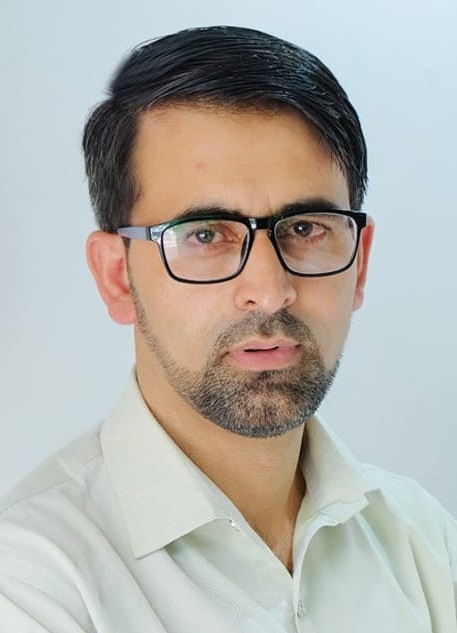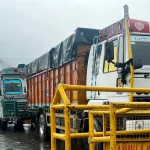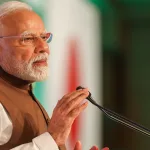WOMEN’S EMPOWERMENT AT RISK
Jammu and Kashmir, a region that has experienced prolonged political turoil and violence, has profoundly affected the lives of its residents, especially women. The persistent instability has placed women in precarious positions, exposing them to widespread insecurity, trauma, and displacement. Many women in the region have been directly or indirectly impacted by violence, with numerous instances of sexual assault, domestic abuse, and societal exploitation. Also Political uncertainty has further disrupted access to education, healthcare, and economic opportunities for women, exacerbating gender inequality and compounding their struggles.
In addition to enduring physical and emotional suffering, women in Jammu and Kashmir also face societal pressures associated with living in a conflict zone. Frequently sidelined in decision-making processes, they are left to navigate a patriarchal society that often marginalizes their voices and contributions. Despite these hardships, the women of Jammu and Kashmir have shown remarkable resilience. Many have emerged as human right activists, advocating for peace, justice, and women’s rights. Women’s organizations in the region continue to work tirelessly to empower women, champion their rights, and provide support to those affected by conflict. Their courage and determination are vital to the ongoing fight for peace and gender equity.
Closure of Special Cells for Women: A Critical Blow
The recent announcement regarding the impending closure of the Special Cells for Women in Jammu & Kashmir, set to take effect on March 31, 2025, has sent shockwaves through gender and women’s rights activists both within the region and across India. This decision follows the cessation of funding from the National Commission for Women (NCW) New Delhi, which has left a significant gap in the support system for women facing violence in the region. The closure of these critical special cells has raised serious concerns about the future of vulnerable women who rely on these services for protection and assistance.
The Special Cells for Women were first established in November 2021 pilot project under the Violence Free Home. A Woman’s Right initiative, this program, implemented by the Tata Institute of Social Sciences (TISS) Mumbai in collaboration with the J&K Home Police department was designed to offer comprehensive psycho-social, legal, and emotional support to women affected by violence.
With essential funding from the National Commission for Women New Delhi, these cells operated across all 20 districts of Jammu & Kashmir, providing crucial, holistic assistance to women in distress. Their services included counseling, legal guidance, medical support and refuge, making them a lifeline for many women in the region grappling with the ongoing impact of violence.
The Role of Special Cells in Supporting Women in Jammu and Kashmir
The special cells for women in Jammu and Kashmir, established in police stations, primarily aim to provide a safe and supportive environment for women who are victims of domestic violence, harassment, or other crimes. The main purpose of these cells is to ensure that women have access to proper legal support, counseling, and protection services, fostering a more sensitive and responsive law enforcement system. These cells are designed to make it easier for women to report crimes, receive assistance, and navigate the justice system in a secure and non-judgmental space.
The Special Cells for Women were instrumental in addressing violence against women, bridging gaps in justice delivery, and providing rehabilitation to survivors. These special cells were staffed by over 40 trained and experienced professional social workers (MSW), with two assigned to each district and two regional coordinators overseeing operations in the Jammu and Kashmir divisions. The teams delivered professional, compassionate, and effective services, offering legal aid, counseling, and rehabilitation support. This ensured that women affected by violence had access to justice, protection, and the necessary resources to rebuild their lives.
In addition to addressing immediate safety concerns, the Special Cells played a proactive role in promoting women’s empowerment. They conducted workshops, awareness campaigns, and legal literacy programs aimed at educating women about their rights and available options. These initiatives helped foster a sense of agency and resilience, encouraging women to actively engage with their legal, social, and emotional needs. By equipping women with the knowledge and tools to assert their rights, the Special Cells contributed to long-term social change.
Consequences of the Closure of Special Cells for Women
The absence of these Special Cells leaves countless women vulnerable, depriving them of the essential resources needed to break free from cycles of violence. Victims of domestic violence, sexual harassment, or workplace exploitation are now left with fewer accessible avenues for support. In a patriarchal society, where women’s voices are often silenced, the dismantling of these cells exacerbates structural inequalities. Women may hesitate to report crimes due to fears of judgment, victim-blaming, or concerns about a lack of confidentiality, which perpetuates cycles of violence and enables perpetrators to remain unaccountable.
Furthermore, the closure of these Special Cells shifts the burden of addressing women-specific grievances onto general law enforcement. Unfortunately, most police departments lack the necessary training and sensitivity to handle such cases with the attention and care they require. As a result, survivors risk retraumatization during the legal process, further diminishing their trust in the system and intensifying their sense of insecurity. This breakdown in specialized support can have devastating consequences, as it discourages women from coming forward and seeking justice, thereby deepening their vulnerability and perpetuating cycles of abuse.
Appeals for Immediate Action
The urgency of the critical situation has prompted widespread appeals from activists, legal experts, and women’s organizations across the nation to reconsider the decision and reinstate funding for the Special Cells. Ensuring continued support for these initiatives is not only a matter of policy but also a moral imperative to protect and uphold the rights, dignity, and well-being of women.
The National Commission for Women (NCW) should take immediate action by extending interim financial assistance to sustain these vital services, providing a lifeline for women in distress. At the same time, the Jammu and Kashmir government must take proactive steps to institutionalize these services, securing long-term, permanent funding for the Special Cells to ensure their continuity. It is essential that these cells remain operational, as they play a crucial role in providing legal, emotional, and rehabilitation support for women affected by violence.
Only by maintaining and expanding these support systems can we ensure that all women in Jammu and Kashmir feel safe, supported, and empowered. Additionally, social workers working in these cells must continue to receive the necessary resources, training, and support to provide ongoing assistance to women in distress, helping them rebuild their lives with dignity and confidence.
Recommendations and the Way Forward
To address the crisis, the government of Jammu & Kashmir must prioritize to provide the funding support to Special Cells for Women. These cells should be reinstituted with adequate funding, resources, and training to provide comprehensive and survivor-centric services. Rebuilding this infrastructure is urgent to restore trust and support for women in the region.
While the J&K government initiates this process, the NCW should continue financial support to ensure the uninterrupted operation of these cells. Such collaboration would prevent further disruption in critical services and demonstrate a united commitment to safeguarding women’s rights.
In the interim, policymakers must explore alternative mechanisms to fill the gap created by the closure. Strengthening community-based organizations, implementing gender-sensitivity training for law enforcement, and investing in helplines or digital platforms for reporting grievances are essential steps. Governments and civil society must work together to address the vulnerabilities faced by women and create a safer, more equitable environment.
Conclusion
The closure of the Special Cells for Women is more than just a logistical setback, it represents a profound loss of safe spaces that empowered women to reclaim agency over their lives and protect their rights. Without these cells, society risks pushing women even further into vulnerability, isolation, and silence, where their struggles go unrecognized and unresolved. The loss of these crucial support systems not only undermines the progress made but also sends a dangerous message about the value of women’s lives and well-being.
Restoring or reimagining these services is not just necessary; it is urgent for fostering a society where women’s rights, dignity, and autonomy are fully protected. A collective and coordinated effort between the Jammu and Kashmir government, the National Commission for Women (NCW), and civil society is essential to ensure that the progress achieved in empowering women is not only preserved but also advanced. This partnership must prioritize the reinstatement and expansion of these services, ensuring that every woman in Jammu and Kashmir has access to the support she needs to live a life free from violence, discrimination, and fear.
(The author is associated with the Juvenile Justice System, and is currently posted in District Shopian, JK UT. Feedback: [email protected])








